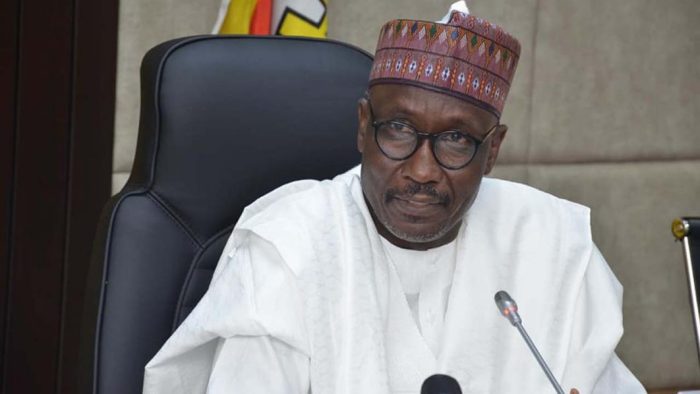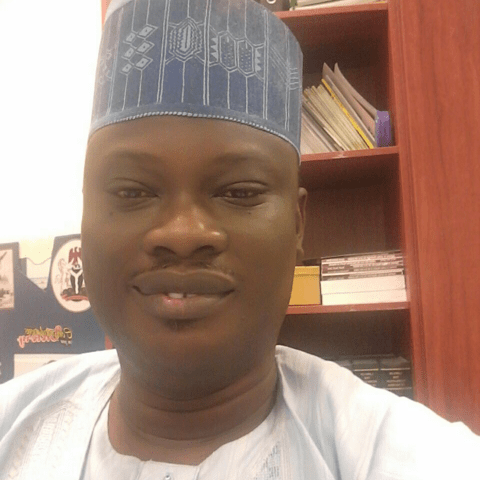Reverend Father Matthew Hassan Kukah,the Catholic Bishop of Sokoto Diocese and the Kukah Centre are one and the same person.It will be very difficult,if not impossible to divorce the person of Matthew Hassan Kukah,the Catholic Priest,from The Kukah Center,the public policy institution,he has put together.In a sense, The Kukah Center is an extension of Father Matthew Hassan Kukah,his ideas, beliefs,his politics,vision etc.There is just no way, The Kukah Center,can be distinguished from Matthew Hassan Kukah – It must be vibrant,forward looking,engaging and relevant.Like we will say in local parlance,lion no fit born goat.
At the heart of The Kukah Center work is the promotion of the much needed Inter – Faith dialogue – ” actively promoting conversation among Nigeria’s faith communities as well as between leaders in faith and public policy. The Kukah Centre aspires to become Nigeria’s leading institution through the promotion of an active and engaged citizenry by serving as a platform for inclusive dialogues and advocacy initiatives.”
The Center is strategically charting a new course in furtherance of its objectives. It’s continuing the conversations through The Education Intervention Programme – a collaborative effort of The Kukah Center, The Catholic Bishops. Conference, the Nineteen (19) Northern States Governors’ Forum and Fundacion Profuturo ,a Spanish Foundation. The programme is an evidence that The Kukah Center is moving from talk,which we like doing , to concrete action.The other critical and urgent question that one is bound to ask,is,has Matthew Kukah become a ” liberation theologist”,in the mold of the Latin America Liberation “movement of the late 20th-century Roman Catholicism centered largely in the Latin America ?.”The movement that sought to help the poor and the very oppressed through active involvement in political and civic affairs? The answer seems yes,but Kukahs weapon of choice,his AK47, is Education,because of its obvious power of education to liberate,for upward mobility of the very poor.There is a relationship between development and education.
It is no longer news that the Nigerian Educational System is in deep crisis. According to the United Nations Children’s Fund(UNICEF), “Forty per cent of Nigerian children aged 6-11 do not attend any primary school with the Northern region recording the lowest school attendance rate in the country, particularly for girls. Despite a significant increase in net enrollment rates in recent years, it is estimated that about 4.7 million children of primary school age are still not in school.Another challenge in Nigeria is the issue of girls’ education. In the North particularly, the gender gap remains particularly wide and the proportion of girls to boys in school ranges from 1 girl to 2 boys to 1 to 3 in some States.”
While the National Statistics by the United Nations Children Fund are horrifying,that of the North can best be described as calamitous,especially as it has been further worsened by the insurgency in the North- East, the full implication that is still to unravel. But the major problem the North is facing, might not be in the numbers, as the statistics is showing impressive numbers, rather it is in the functionality of its schools.Statistics show that the three(3) Geo-Political Zones of the North,have 41,913 public primary schools,twice the number of schools in the entire South.However the North despite this is fantastic statistics in numbers, is lagging behind the South, as the South has 67% literacy level, while the North has a 34% literacy level.
This is where The Kukah Center and Fundacion Profuturo initiative designed to tackle the identified challenge – functionality of the schools,makes profound sense.According to Kukah,”ProFuturo (For the Future) is a Spanish-based Foundation whose purpose is the pursuance of equality for all through education. It seeks to provide equal opportunities to all persons and it has decided to adopt technological innovation as a means of enhancing educational opportunities for all.It does this through the provision of digital skills for children in poverty stricken environments, children who ordinarily would not have access to these opportunities.” Presently, the Foundation works in Africa, Asia and Latin America.
The programme targets children in primary schools. The idea is to equip them with scientific methods of learning at an early stage. Visible and measurable changes have been reported about the programme in Uganda, Kenya, Tanzania and Rwanda where they currently run.And this is an additional challenge to Nigeria,if it is working in those countries,it shouldn’t fail here.
This initiative though kicked started by Kukah the priest,has become a baby of the The Catholic Bishops Conference of Nigeria,the Northern States Governors Forum (NSGF) and The Kukah Centre,all in the best interest of the sons and daughters of the North. This collaborative programme is an indication of what we can achieve as a people,when collectively we act.This confirms the benefits of the Inter -Faith Dialogue,the benefits of friendship,of trust.Giving the mutual mistrust,who would have thought that such a project would ever be conceived? That the Catholic Church would sit down to discuss education with Northern Governors having lost its schools in the forceful takeover of the Yakubu Gowon government?
According to Kukah,”My interest was to see if I could explore the opportunities for my schools in Sokoto Diocese”. Meaning ab initio Kukah was like every other man,selfish. He only saw the opportunity for his dear Sokoto Diocese,then probably the Catholic Church,but thankfully Kukah saw the picture and the project widened beyond the church to cover the entire North, a landscape of “perpetual illiteracy”. It is to his credit that he saw this larger picture after the chance encounter with Cesar Alierta,the President of the Fundacion Profuturo at the “Assisi Gathering.’ The Assisi Declaration, is a programme lunched by the late Pope John Paul II, (now St. John Paul)for religious leaders from all over the world to commit themselves to seeking peace through interreligious dialogue.The Emir of Kano,the irrepressible Sanusi Muhammadu was present at the event,and so became part of the meeting,that has given birth to this laudable programme.The Emir had a choice to have declined attendance, just as Kukah and the Catholic Bishops could equally had “sneaked” behind him to ensure that only Catholic schools enjoyed the largesse. Slowly,but surly barriers are being broken down.
The challenge before the Mike Magaji led management team,is to over deliver on the expectations of the stakeholders,they can’t just afford to fail.Accountability and transparency must guide their actions,as nothing puts off funding agencies like poor reporting.It is great that there is a buy in of the governor’s and the traditional rulers,which will hopefully stop any hostile campaign from taking root.But the team must work on other critical stakeholders- parents,religious leaders and the media.
The team must remember the vast majority of vulnerable children of the North,that this project has the capacity to lift out of poverty.And beyond the economics – the project will rekindle that humanity that we have since lost.It will address in a very fundamental way biases and prejudices,that has held us down.The governors,their various Commissioners of Education and parents have a duty to ensure that the various threshold are met and that the programme succeeds. We can’t afford to fail the Fundacion Profuturo which is excited coming to Nigeria.Will this be a magic wand for almajiri children? Can these learning tools attract and retain them in school? It is all in our hands.And like the Borno State Governor, Kashim Shetima said the programme will help “address the critical need to make public schools in Northern Nigeria more and more functional.There is still some hard work,so the Northern Governors pledge of total commitment to the implementation of this project,must go beyond lip service.
Our divisive politics must not creep in.The role of The Kukah Centre,which some cynics have started questioning must be understood as provision of Secretariat services.And that the Center also facilitated the negotiations between the Catholic Church and the NSGF. Same with the Catholic Church,which no one can deny its pioneering role in education in Nigeria. It has more schools across the country,than any other Faith,and it is this experience that the project is leveraging on.
So far great efforts and pains have been taken to ensure that politics is kept abay.
The Draft MoU was reportedly circulated to all the parties, the NSGF, the Catholic Church, the Emir of Kano,and The Kukah Centre.The Attorney General of Borno State has also been part of the project.Same with the Emir of Keffi,an Associate Professor of Law.Such confidence building openness should guide the operations of the initiative.
Having sorted out the management team – with The Kukah Centre and the NSGF providing three staff, two females and one male. The next and critical area of challenge is content.Content must comply with our religious sensibilities. A family remains for us in Nigeria – a father – man,a mother – woman and children and not a father – man,and mother – man.Knowledgable members of both faith should be part of the review body,before the contents are uploaded. No matter how good intentioned,there will always be conspiracy theorists,and the only way to shut them up,is by being open.So there must be a verifiable criteria for the pilot 100 schools chosen.
I charge the management team to take these words of Kukah to heart “the vision of the catholic Church is always universal. We are not a closed community thinking only of ourselves. We believed that this programme was a good opportunity to reward the spirit of Assisi and the spirit of dialogue.



